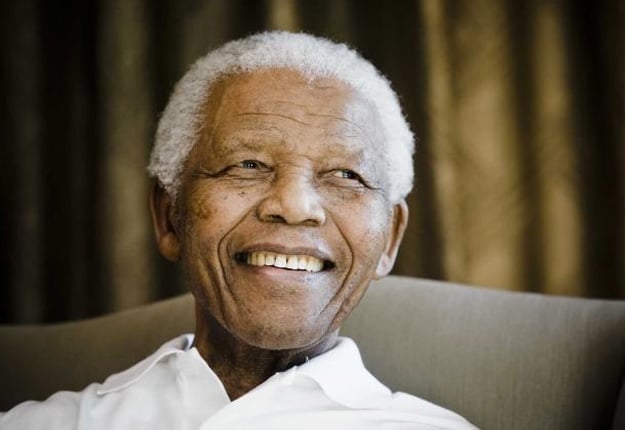He was South Africa’s first democratic president and first black president, a former prisoner, a father, a grandfather, a great-grandfather and a friend to many. But more than that, Nelson Mandela symbolised freedom and forgiveness in his determination to set his country on the right path, and to forgive the many wrongs wrought upon him and his people.
Mandela, who died aged 95 on Dec. 4, was celebrated on Dec. 10 in a national memorial attended by current and former world leaders and tens of thousands of his countrymen.
As a young lawyer, he had suffered under the country’s system of apartheid and was charged variously with incitement, sabotage and treason as he plotted to overthrow the apartheid system. He was held in many prisons from 1962 until 1990, suffering lifelong health problems from his time in incarceration.
While inside,
He demanded better rights for us all in prison. The right to get more letters, get newspapers, listen to the radio, better food, right to study,
said fellow inmate Khehla Shubane. “It may not sound like much to the outside world, but when you are in prison, that’s all you have.”He had also turned from his youthful championing of violent conflicts to overthrow the system into a wise man who understood the power of a peaceful struggle.
In his 1995 autobiography, Long Walk to Freedom, he wrote,
No one is born hating another person because of the colour of his skin, or his background, or his religion. People must learn to hate, and if they can learn to hate, they can be taught to love, for love comes more naturally to the human heart than its opposite.
“The day he was inducted as president, we stood on the terraces of the Union Building,” former president F.W. de Klerk remembered years later. “He took my hand and lifted it up. He put his arm around me, and we showed a unity that resounded through South Africa and the world.”
Retiring from public life at the age of 86 to spend more time with his loved ones, Mandela, known by his clan name of Madiba, declared, “Don’t call me, I’ll call you.”
His last public appearance was at the 2010 soccer World Cup, when he said he felt “like a boy of 15.”
“I would like to be remembered not as anyone unique or special, but as part of a great team in this country that has struggled for many years, for decades and even centuries,” he said.
The greatest glory of living lies not in never falling, but in rising every time you fall.
Pastor Niekie Lamprecht presided over a service in the Dutch Reformed Church of Pretoria East at which a picture of the leader was projected above the pulpit. He told his overwhelmingly white congregation that Mandela had been a driving force for the positive changes wrought even within their own church. “He said, ‘Let’s forgive,’ and he forgave. That created a space for people to feel safe … at a time when the expectation was that there was going to be a war.”
“Madiba did not doubt the light,” said Father Sebastian J. Rossouw at a Mass at the Regina Mundi Church, the centre of the Soweto uprising in 1976. “He paved the way for a better future, but he cannot do it alone.”
Said President Jacob Zuma, “Rest in peace, our father and our hero.”




















9:52 pm
10:02 pm
3:17 pm
8:53 pm
2:22 pm
11:18 am
1:38 pm
4:38 pm
9:54 am
10:07 pm
1:50 pm
12:25 pm
12:30 am
4:16 pm
3:42 pm
2:20 pm
5:36 pm
7:31 am
10:23 pm
8:15 pm
- 1
- 2
- …
- 6
- »
Post a commentTo post a review/comment please join us or login so we can allocate your points.